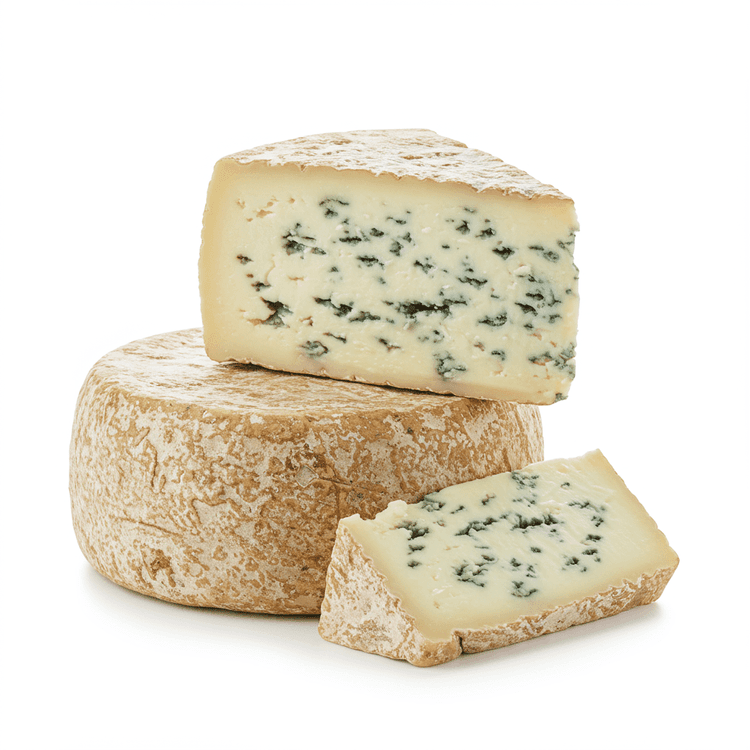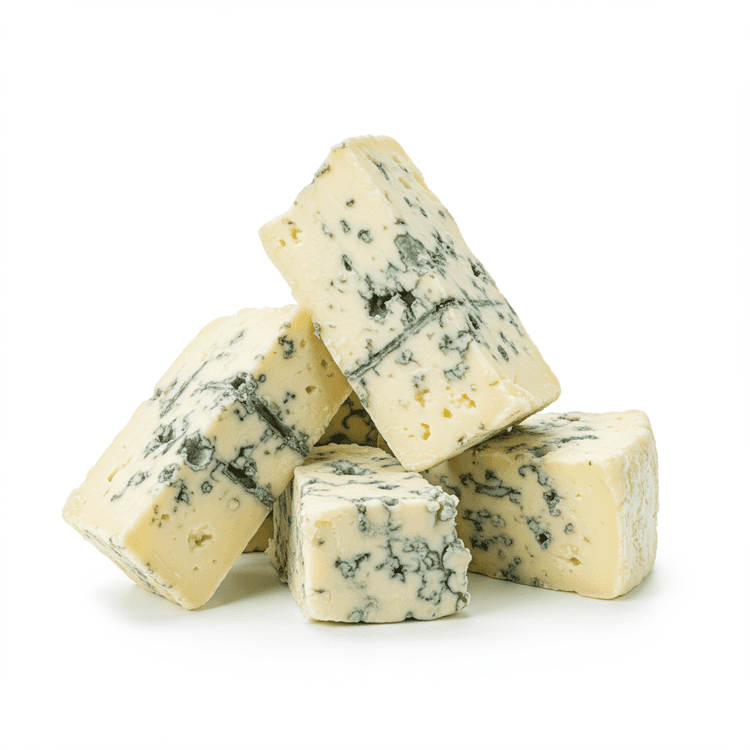
Roquefort
Roquefort is a world-renowned blue cheese hailing from France. Known for its pungent aroma and intensely salty, tangy flavor, Roquefort offers a complex taste profile with a slightly sweet finish. Its creamy, crumbly texture is marbled with distinctive blue-green veins created by Penicillium roqueforti mold. Visually, Roquefort boasts a striking contrast between the ivory-colored paste and the bold blue veining, making it a visually appealing cheese. This sheep's milk cheese is a versatile ingredient elevating salads, sauces, and cheese boards alike.
Common Uses
- Roquefort is often crumbled over salads with walnuts and pears, providing a sharp, creamy counterpoint to the sweet and crunchy elements, enhancing the overall flavor and texture profile of the salad.
- Roquefort can be melted into creamy sauces for pasta or steak, imparting a rich, pungent flavor that elevates the dish with its unique character.
- Roquefort is a classic addition to cheese boards, pairing well with fruits like figs and grapes, as well as nuts and crusty bread, offering a diverse tasting experience.
- Roquefort makes a flavorful addition to quiches and tarts, adding a salty and tangy depth that complements savory fillings like spinach, mushrooms, or caramelized onions, creating a complex and satisfying dish. -Roquefort is commonly used in making salad dressings where it adds a rich, pungent and salty flavor to the dressing and elevates simple green salads. -Roquefort is also known to be served with wines such as dessert wine, such as Sauternes
Nutrition (per serving)
Nutrition (per serving)
Calories
369.0kcal (18.45%)
Protein
21.0g (42%)
Carbs
0.0g
Sugars
0.0g
Healthy Fat
8.8g
Unhealthy Fat
20.7g
% Daily Value based on a 2000 calorie diet
Nutrition (per serving)
Calories
369.0kcal (18.45%)
Protein
21.0g (42%)
Carbs
0.0g
Sugars
0.0g
Healthy Fat
8.8g
Unhealthy Fat
20.7g
% Daily Value based on a 2000 calorie diet
Health Benefits
- Rich in calcium, supporting bone health and reducing the risk of osteoporosis.
- Contains conjugated linoleic acid (CLA), a fatty acid linked to potential anti-inflammatory and anti-cancer effects.
- A good source of protein, essential for muscle building and repair.
- Provides beneficial probiotics that may improve gut health and digestion.
- Offers vitamins A and B12, contributing to overall health and well-being.
- May help improve cholesterol levels when consumed in moderation.
Substitutes
Chefadora AI is here.
Experience smarter, stress-free cooking.
Storage Tips
Roquefort cheese should be stored in the refrigerator to maintain its quality and prevent spoilage. Wrap it tightly in wax paper or cheese paper, then place it in a resealable plastic bag or airtight container. This will help prevent it from drying out and absorbing odors from other foods. Roquefort is best consumed within 1-2 weeks of purchase for optimal flavor and texture. Avoid freezing, as it can alter the texture of the cheese, making it crumbly.
Marnirni-apinthi Building, Lot Fourteen,
North Terrace, Adelaide, South Australia, 5000
Australia

